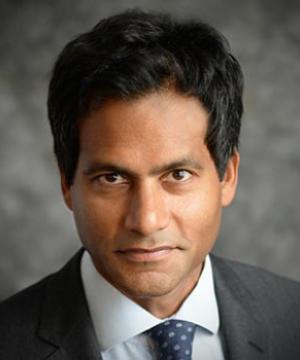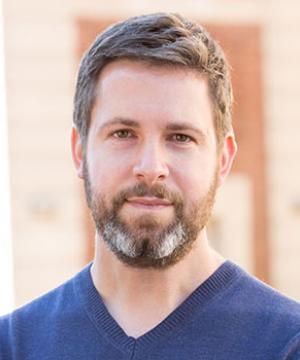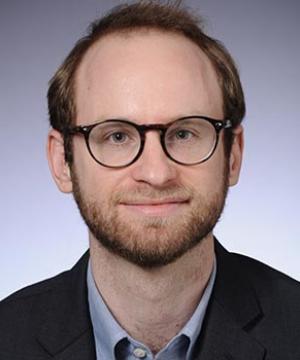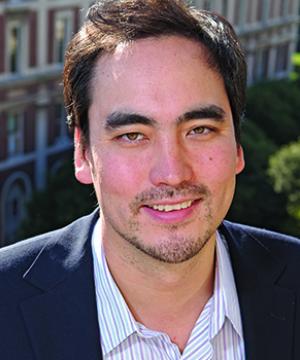Columbia Law Review Invites Scholars to Reimagine the First Amendment
In recent years, a growing number of legal scholars have been critiquing federal court decisions limiting or striking down social and economic regulations in the name of free speech. On March 23, the student-led Columbia Law Review took a major step toward furthering the conversation by hosting a symposium designed to inspire scholars and practitioners to imagine how the First Amendment can be understood to advance social and economic equality, both in the courts and through the political process.
“Obviously there is a lot of pent-up demand for this conversation,” said Jameel Jaffer, the founding director of the Knight Institute, who moderated one of the morning panels. (The Review has published important scholarship on this topic, most recently in 2015 and 2016.)
The idea for the symposium originated with Columbia Law School Professor David Pozen, the Knight Institute’s inaugural visiting scholar. At the Knight Institute, Pozen launched and edits “Emerging Threats,” a series that invites authors to consider structural threats to free expression. Columbia Law School Professor Tim Wu, a panelist at the symposium, wrote the first paper in the series: “Is the First Amendment Obsolete?”
First Amendment Lochnerism involves the use of the First Amendment to entrench social and economic hierarchy. The term “Lochnerism” comes from a 1905 U.S. Supreme Court ruling striking down a labor law that had limited the number of hours New York bakers could work as interfering “with the right of contract between the employer and employees.” More recent examples of Lochnerism, according to scholars at the symposium, include Citizens United v. Federal Election Commission, the 2010 U.S. Supreme Court ruling that struck down federal limits on corporate political spending; and the 2011 case Sorrell v. IMS Health Inc., in which the Court struck down a state law protecting medical patients’ personal data; six Justices embraced the argument that a company’s selling of prescription drug records is a form of free speech.
Columbia Law School Professor Jeremy K. Kessler, who wrote about Lochnerism for the Columbia Law Review in 2016, signed on immediately to help.
The pair pitched the idea to members of the Columbia Law Review administrative board, including editor-in-chief Kelsey Austin Ruescher ’18 and Online Editor and Symposium Committee Chair Eve A. Levin ’19, where it was “overwhelmingly approved,” said Ruescher. “It was exciting; it seemed timely, and it could also have an impact on First Amendment law and legal scholarship going forward.”
Levin agreed, adding, “The symposium aimed to take [First Amendment Lochnerism] critiques and change the register they spoke in from a critical voice to a rebuilding project. In some ways, it should have been an obvious step for the academic field, and yet it had not gotten there.”
The daylong symposium featured opening remarks by Pozen; a lunchtime talk by Columbia University President and First Amendment scholar Lee C. Bollinger; closing words from Tomi Williams ’19, the 2018-2019 editor-in-chief of the Columbia Law Review; and five panel discussions: “Can the First Amendment Be Progressive?,” “The Digital Infrastructure and Political Economy of Free Expression;” “Equal Protection and the First Amendment;” “A Progressive Labor Vision of the First Amendment,” and “Reflections and Next Steps.”
In the fall, the Columbia Law Review will publish papers by seven authors whose works were discussed at the symposium, including Jedediah Purdy, the Robinson O. Everett Professor of Law at Duke University who will be joining the Columbia Law School faculty in 2019. Purdy presented his work-in-progress, “Beyond the Bosses’ Constitution: Political Economy for a Democratic First Amendment,” and responded to questions from Wu, University of Pennsylvania Law School Professor Maggie McKinley, and Yale Law School Professor Jack M. Balkin, whose own contribution, “Free Speech is a Triangle,” will also be published in the symposium issue. Jaffer moderated the conversation.
Ruescher and Levin said after the symposium that they are hopeful that work will continue.
"The symposium began a very challenging conversation," Levin said. "In that respect, it was all we could have hoped for. In terms of what sort of lasting effect it will have—only time will tell."
In addition to Ruescher and Levin, other members of the Columbia Law Review Symposium Committee are Williams, Hayley Malcolm '19, Jeff Stein '19, Samantha Hall '18, Joseph H. Margolies ’18, Patricio G. Martínez-Llompart ’18, and Bruce Pettig ’18.
Pozen and Kessler both praised all the students’ work.
“It was humbling to work with such brilliant and dedicated students,” Pozen said. “Professor Kessler and I may have proposed the symposium and helped steer certain aspects, but the students owned it.”
###
Published on April 5, 2018



